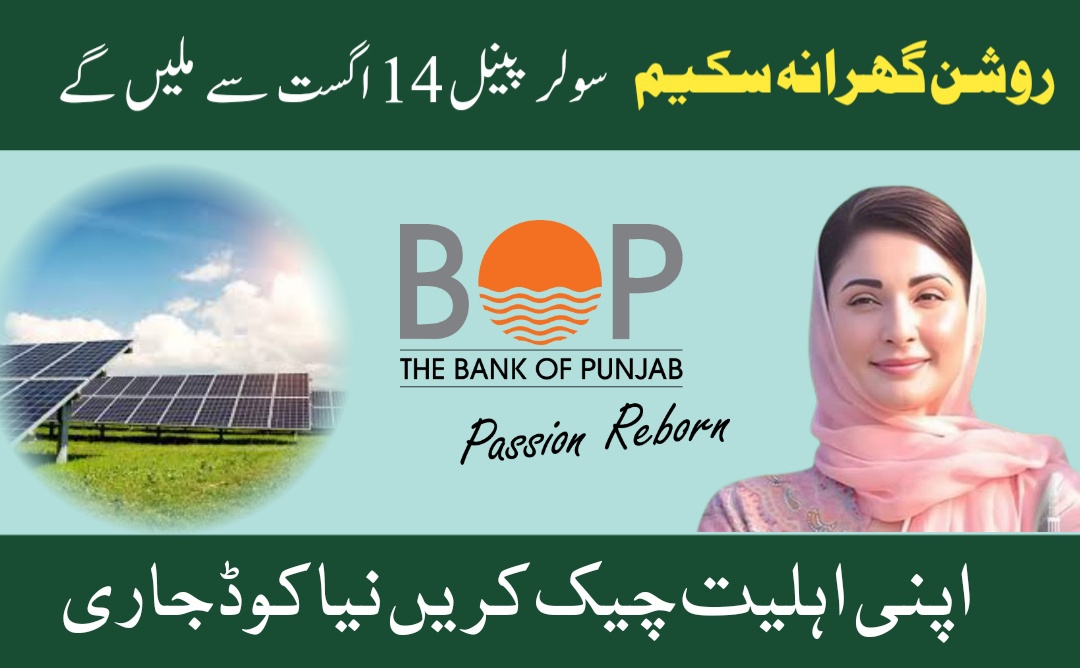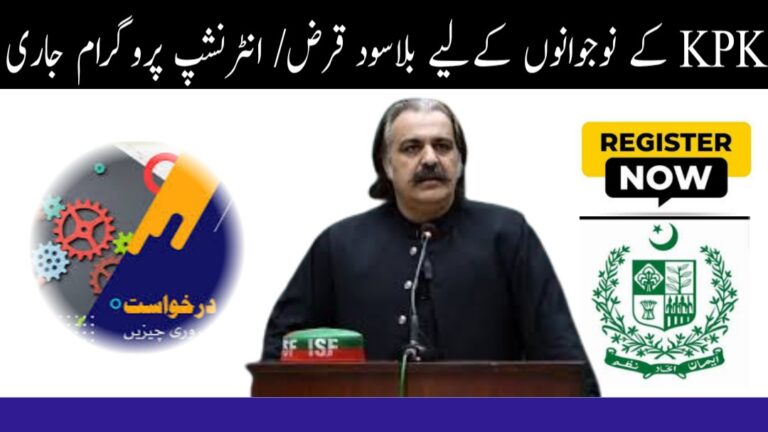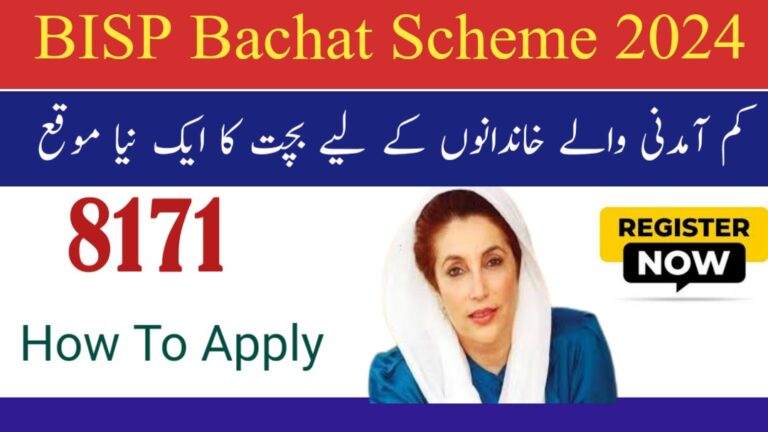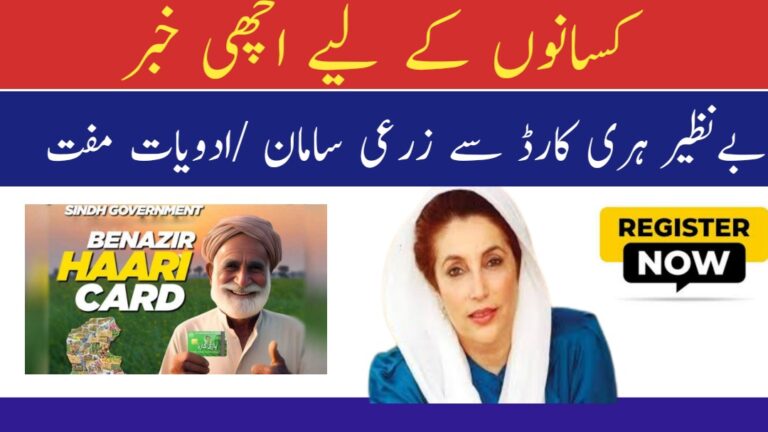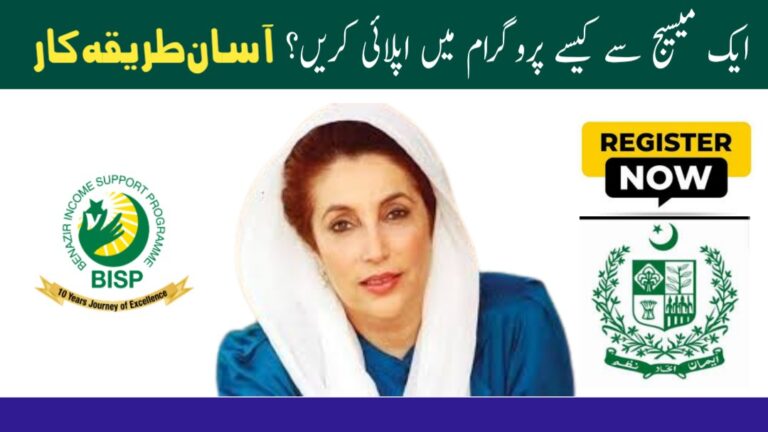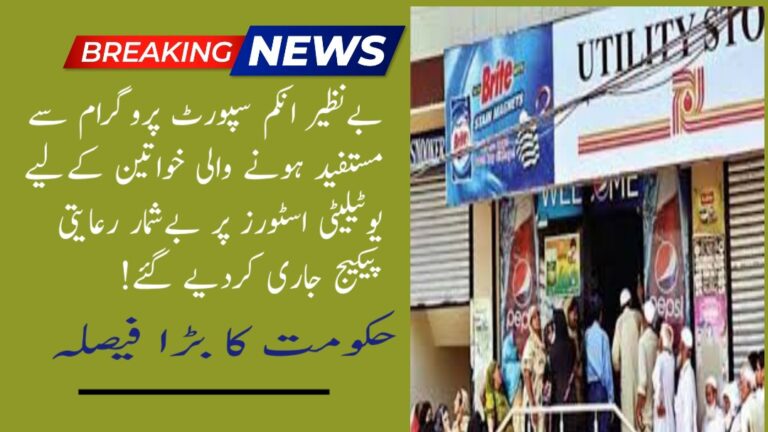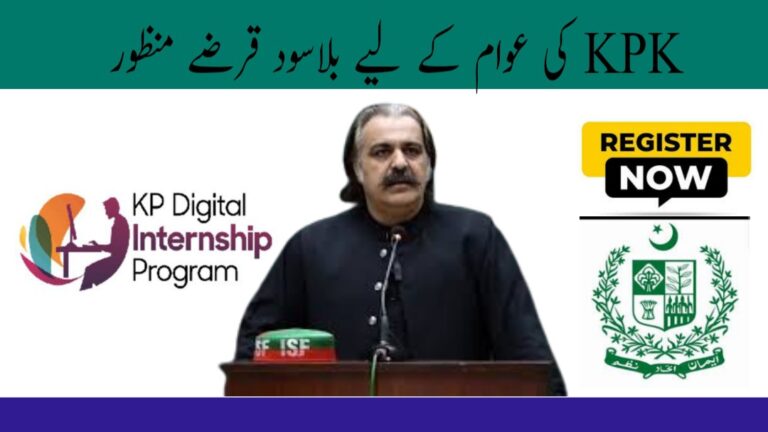Roshan Gharana Program Registration Process
Pakistan’s second-most populated province, Punjab, is now experiencing a severe energy crisis. The province now has a substantial need for power due to its expanding population and developing urbanization. Urban and industrial locations have a heightened need for this product. Under the direction of Chief Minister Maryam Nawaz Sharif, the Punjab government has introduced the Roshan Gharana Scheme, which intends to supply solar panels to homes all around the province, to solve this energy shortfall.
Energy Crisis in Punjab
Punjab has had significant energy shortages since the 1970s. The province’s 32% excess electricity usage results in frequent blackouts and impedes economic development. The industrial sector is most negatively impacted by these power outages, which cause a decrease in output and economic expansion. The energy crisis has demonstrated the necessity for alternate energy sources to keep up with the province’s expanding demands.
Chief Minister’s Initiative
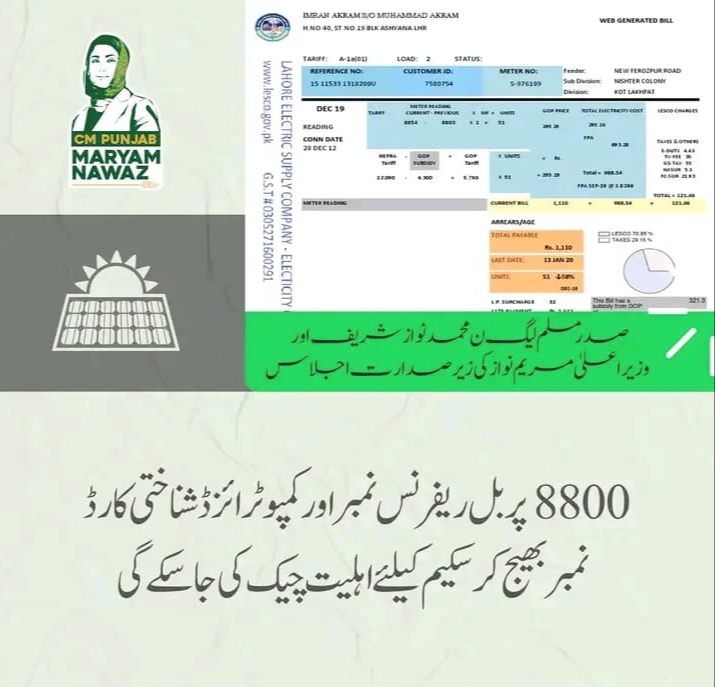
Maryam Nawaz Sharif, the chief minister, has acknowledged the severity of Punjab’s energy situation. She started the Roshan Gharana Scheme, a significant project to give solar energy panels to homes in the province, to solve this problem. The government’s dedication to assisting its inhabitants and raising their standard of living is demonstrated by this historic move. The program’s objectives are to encourage the use of renewable energy sources and lessen the load on the industry that produces power.
Details of the Roshan Gharana Scheme
Solar energy panels will be given to homes that utilize up to 500 electrical units as part of the Roshan Gharana Scheme. The Punjab Cabinet has approved the project, which is being spearheaded by Chief Minister Maryam Nawaz Sharif. Through a fair and equal distribution, the program seeks to offer solar panels in both rural and urban areas. By doing this, Punjabi houses would be better lit and less dependent on conventional electrical sources.
Financial Details of the Project
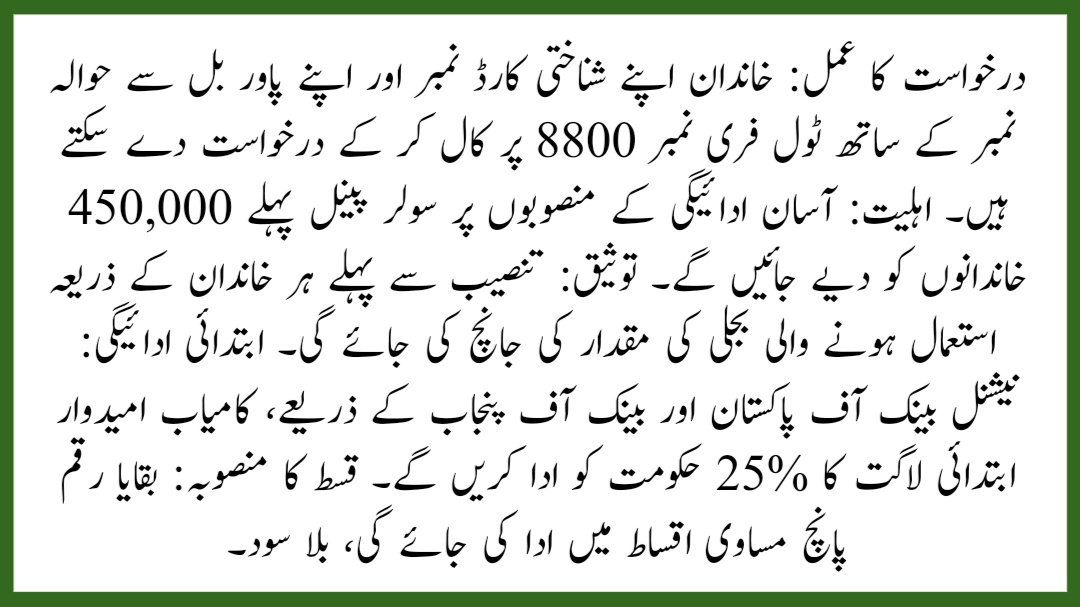
An audacious and ambitious endeavor is the Roshan Gharana Scheme. 90% of the solar panels’ total cost would be paid for by the Punjab government; the other 10% would come from the receivers. The project is more viable and family-friendly with this finance strategy. People will find it simpler to afford because the payment plan is based on a minimum interest, five-year installment schedule. The installment amount will be lowered in the winter to further facilitate your needs.
Application Procedure
- Application Process: Families can apply by calling the toll-free number 8800 with their ID card number and the reference number from their power bill.
- Eligibility: Solar panels on convenient payment plans will be given to the first 450,000 families.
- Verification: The amount of power used by each family will be checked before installation.
- Initial Payment: Through the National Bank of Pakistan and the Bank of Punjab, successful candidates would pay the government 25% of the initial cost.
- Installment Plan: The balance is to be paid in five equal installments, interest-free.
KB Government Launches Loan Scheme and Internship Program: Check Eligibility
On Friday, November 8th, Chief Minister Ali Amin Gandapur launched the Youth Internship Program and Ehsaas Youth Program in Peshawar. These initiatives aim to empower young people in Khyber Pakhtunkhwa (KPK) by providing them with financial support and job opportunities to become more independent. Through this program, young entrepreneurs can access soft loans of up…
Continue Reading KB Government Launches Loan Scheme and Internship Program: Check Eligibility
BISP Bachat Scheme 2024 – A New Savings Opportunity for Low-Income Families in Pakistan
The BISP Bachat Scheme 2024, also known as the BISP Saving Scheme, is a new initiative by the Benazir Income Support Programme (BISP) aimed at helping poor families in Pakistan save money. This program allows low-income families to set aside a portion of their financial aid into a savings account, earning profits backed by the…
How to Apply for the Benazir Hari Card
The Benazir Hari Card is a new initiative by the Sindh Government designed to assist landless farmers and low-income families in rural areas. This card aims to support families who rely on agriculture but do not own land, facing challenges like poverty and financial instability. By providing financial aid and access to essential resources, the…
Latest Update: Free SMS to 8171 for BISP Ehsaas Code – Now Available for 9.3 Million Women
The Benazir Income Support Program (BISP) is a major initiative by the Pakistani government aimed at providing financial assistance to over 9.3 million women and households across the country. To make it even easier for these beneficiaries, BISP has launched a free SMS service using the code 8171, allowing women to check their payment status…
Latest Update: Utility Store Subsidy Check Online Through 8171 Web Portal in 2024-25
The Utility Store Subsidy is a government program in Pakistan that provides low-income families with essential items at reduced prices. This initiative makes it easier for eligible individuals to purchase everyday necessities without spending a large portion of their income. Through the 8171 web portal, applicants can quickly check if they qualify for this subsidy…
Interest-Free Loans and Internships for Youth in KPK
Two significant youth-supporting initiatives have recently been introduced by the Khyber Pakhtunkhwa (KP) government. These initiatives are known as the Chief Minister Youth Internship Program and the Ehsaas Naujwan Program. These programs aim to help young people launch their enterprises or further their professions by giving them financial aid and work experience. These programs were…
Continue Reading Interest-Free Loans and Internships for Youth in KPK
Accountability of Electricity Units
There are many stages to the distribution of solar panels under the Roshan Gharana Scheme. Families with up to 200 units of power will receive free solar panels in the first phase. Families with 200–500 units will receive interest-free solar panels in the second phase. Families utilizing more than 500 units will have 75% of the cost paid for by the government, with the remaining portion coming from the users. The program will assist those who need it the most thanks to our staged approach.
Implementation of the Plan
The poor and disadvantaged groups in Punjab will be given priority when the Roshan Gharana Scheme is implemented. The distribution of solar panels will be equitable, with an emphasis on striking a balance between solar energy and government-supplied electricity. The objective of this project is to lessen the burden of producing power on the government and to encourage self-sufficient energy generation. The ultimate objective is to establish a sustainable energy future for Punjab that would benefit the people and the government.
Governmental Stance on the Project
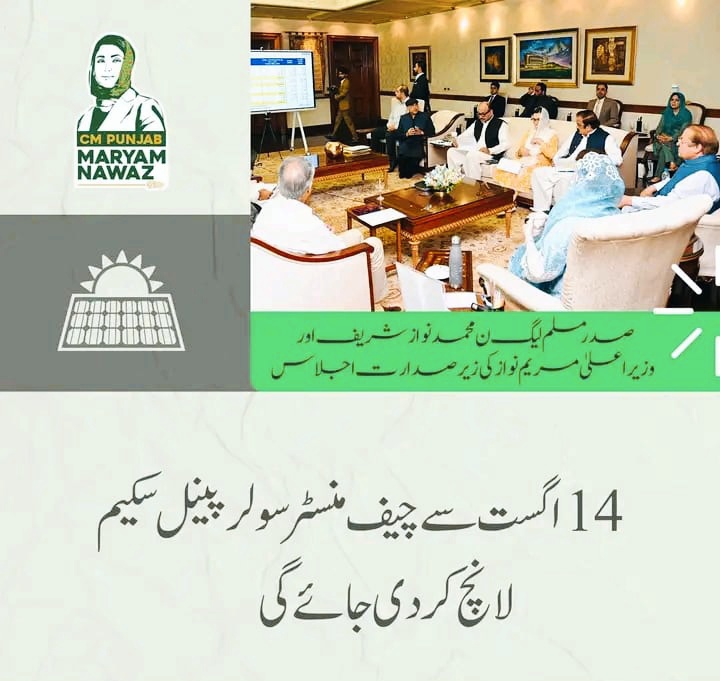
The Roshan Gharana Scheme has the support of the Punjab government, which sees it as a cornerstone for future energy generation. The plan offers long-lasting effects at a comparatively minimal expenditure. The government is dedicated to serving the needs of its people, especially in times of need. The government hopes to ensure a better future for Punjab by initiating this project, which would lower energy shortages and raise living standards.
Future of the Project
It is anticipated that Punjab will have a better and more secure future under the Roshan Gharana Scheme. On July 9, 2024, formal project discussions were held, signaling the start of a new chapter in the province’s history. By giving people in Punjab access to a dependable energy source, the program empowers them and eventually advances the growth and development of the province. The program is an expression of the government’s commitment to building a successful and sustainable future for everybody.
FAQs
Q1: Who can apply for the Roshan Gharana Scheme?
Punjabi families that use up to 500 units of energy are eligible to apply for the solar panels.
Q2: How do I apply for the Roshan Gharana Scheme?
Send your electricity bill reference number and ID card number to the toll-free number 8800.
Q3: What costs are involved for recipients?
The recipients will bear 25% of the initial cost; the government will fund the remaining 75%. The remaining amount can be paid in five years interest-free.
